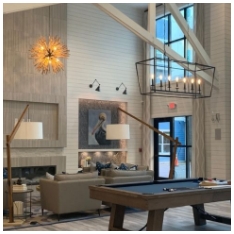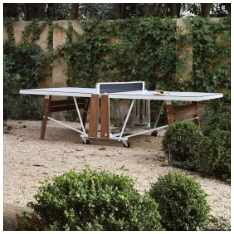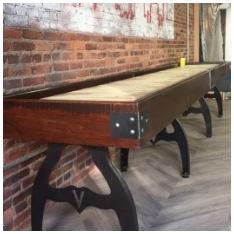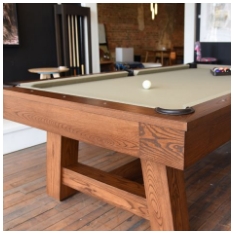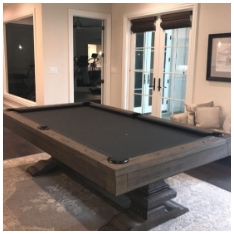Pool tables have long been a staple in game rooms and entertainment spaces. Whether you're an avid billiards player or simply enjoy hosting social gatherings, a pool table can enhance the ambiance of your home. In this article, we’ll explore why pool tables are a classic addition, how to select the right one, and practical considerations when integrating them into your space.
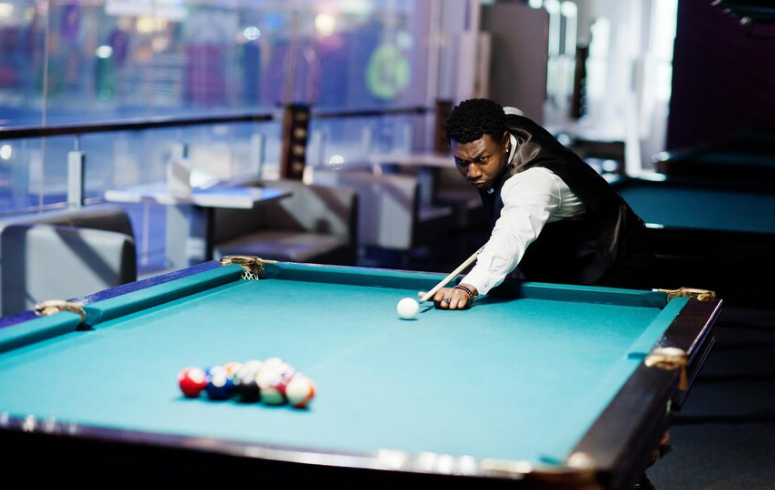
The Appeal of Pool Tables
Pool tables are more than just gaming equipment. They serve as focal points in homes, blending functionality with style. Whether you prefer a traditional design or a modern aesthetic, a pool table adds a sense of sophistication and fun to any room.
Social Engagement
One of the primary reasons pool tables are popular is their ability to foster social interaction. When you have a pool table in your home, it becomes a gathering spot for family and friends. The game encourages conversation and friendly competition, making it a perfect activity for parties or casual hangouts. Unlike many other games, billiards is a leisurely activity, which means players can socialize and enjoy themselves without feeling rushed.
Aesthetic Enhancement
A pool table isn’t just a piece of furniture—it’s a statement. These tables come in a variety of styles, from classic wooden finishes to sleek, contemporary designs. No matter the décor of your home, there's a pool table that will complement it. When strategically placed, a pool table can elevate the visual appeal of your game room, living room, or basement.
Choosing the Right Pool Table
Before adding a pool table to your home, it's important to consider various factors to ensure you make the right purchase. Pool tables come in various sizes, materials, and designs, each suited to different preferences and spaces.
Pool Table Size
One of the most important considerations is the size of the pool table. Pool tables come in different sizes, typically ranging from 7 feet to 9 feet. The size you choose should depend on the available space in your home. A standard 8-foot table is a good middle ground, offering a balance between playability and space requirements. However, if you have limited space, a 7-foot table might be more practical. On the other hand, serious players may prefer a 9-foot table for a more authentic experience.
Material and Construction
The quality of a pool table largely depends on its construction materials. High-quality pool tables typically feature slate tops, which offer superior durability and smoothness for gameplay. Slate pool tables are heavier and more expensive but are ideal for long-term use. Alternatively, MDF (medium-density fiberboard) pool tables are more affordable and lighter but may not provide the same level of performance or longevity as slate tables.
Style and Design
When selecting a pool table, consider how it will fit with the rest of your home’s interior design. Pool tables are available in various styles, from traditional wooden designs with intricate carvings to more modern, minimalist options. If your home has a classic look, a richly stained wooden pool table with leather pockets might be the perfect fit. For contemporary homes, sleek, metal-framed tables with clean lines can provide a modern touch.
Placement and Room Setup
Where you place your pool table in your home is as important as the table itself. The space should not only accommodate the table but also allow for comfortable movement and gameplay.
Room Dimensions
The room where you plan to place your pool table needs to be large enough to accommodate both the table and the players. A general rule of thumb is to have at least 5 feet of space around all sides of the table. This allows players to move freely and use standard cue sticks without bumping into walls or furniture.
For example, if you’re placing an 8-foot pool table (which measures 4.5 by 9 feet), the room should ideally be at least 13 by 17 feet. Smaller rooms may require shorter cue sticks or a smaller table size.
Lighting Considerations
Good lighting is essential for a functional and enjoyable pool table setup. Overhead lighting should be bright enough to illuminate the table’s surface evenly without causing glare. Traditional pool table lights often feature multiple hanging bulbs arranged in a line, casting even light across the table. Alternatively, recessed lighting or a large overhead pendant light can also work, as long as it provides adequate coverage.
Flooring
The flooring beneath your pool table should be both durable and level. Hardwood, laminate, or tile flooring is preferable to carpet, as these materials provide a stable surface for the heavy table. Carpeted floors can cause the legs of the table to sink over time, leading to an uneven playing surface. Additionally, hard flooring is easier to clean when chalk and other debris inevitably fall during games.
Maintenance and Care
A pool table is an investment, and like any investment, it requires regular care and maintenance to ensure it lasts for years to come.
Cleaning the Felt
The felt, or cloth, on your pool table’s surface is particularly vulnerable to wear and tear. To maintain its condition, it's important to brush the felt regularly to remove dust, chalk, and debris. A pool table brush, which has soft bristles, is designed for this purpose. Be sure to brush in straight lines rather than circular motions to avoid stretching or damaging the fabric.
Leveling the Table
Even the highest-quality pool table can become uneven over time due to weight shifts or changes in your home’s foundation. A level playing surface is crucial for accurate gameplay, so check your table’s level periodically. Most tables come with adjustable legs, allowing you to correct any imbalances.
Protecting the Table
When not in use, it's a good idea to cover your pool table to protect it from dust and sunlight. A cover will also safeguard the table from accidental spills or scratches, especially if the pool table is in a high-traffic area of your home. Additionally, encourage players to avoid sitting or leaning on the table, as this can cause damage to the slate and weaken the structure over time.
Pool Tables as Long-Term Investments
While pool tables can be expensive, they’re often seen as long-term investments for both entertainment and home value. A high-quality pool table can last for decades with proper care, and in some cases, it can even increase the appeal of your home to potential buyers.
Entertainment Value
A pool table offers endless entertainment for players of all ages. From casual games to competitive tournaments, it provides a versatile activity that can be enjoyed year-round. Moreover, unlike many other forms of home entertainment, a pool table doesn’t require any additional accessories or technology, making it a low-maintenance option.
Home Value
For homeowners looking to create a unique, inviting space, a well-placed pool table can be a selling point. Many homebuyers see a dedicated game room or entertainment space as a desirable feature, and a pool table can add to the allure. While it may not drastically increase your home’s market value, it can certainly make your property stand out.
Conclusion
Adding a pool table to your home is about more than just playing billiards. It’s about enhancing your living space, creating opportunities for social interaction, and investing in a piece of furniture that can last a lifetime. Whether you're a seasoned player or a casual enthusiast, a pool table is a timeless addition to any home.

